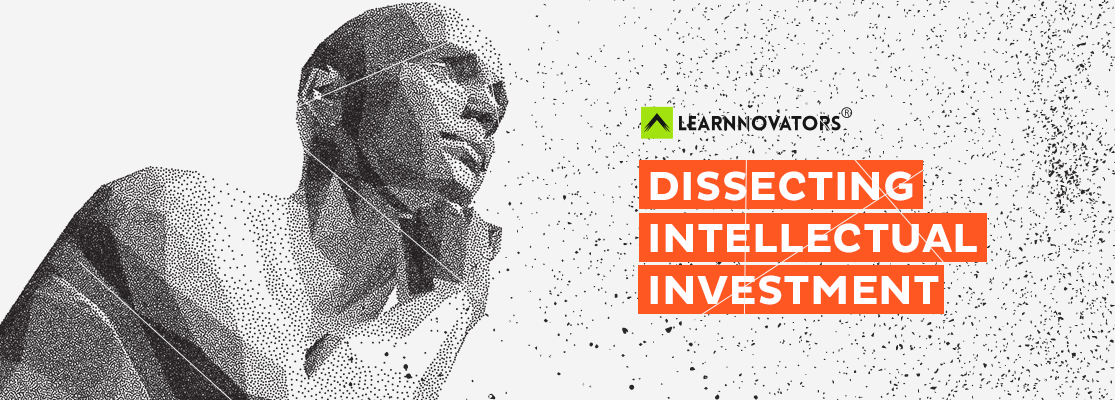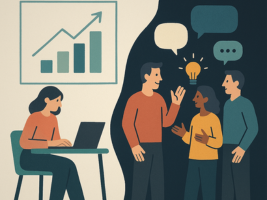I know it’s not just me, we’re all increasingly getting drawn into (or witnessing) heated intellectual clashes the last few years, online and offline. These clashes may be political, social, cultural – the subjects vary, but the vehemence and acrimony are constants.
That’s why it seemed a good time to reset by reminding myself of something that changed the way I involved myself in debates. (Plus, this is also an incidental love letter to theory, study and good thinking habits!)
The Price Paid for Making the Investment
To begin with, I think it is worth breaking down what it entails to throw our weight behind an idea and say we know it. To say we know it for sure. We stand by it. The short version? We commit to undertaking a ton of risk, actually (or that’s how it seems to me).
Let’s see what those risks look like.
There’s the obvious reputational risk, of ruining our standing and image with other people by believing something that turns out to be incorrect. But to stop there is actually really cynical – there’s a lot more and it’s far more guileless.
It’s a huge emotional risk. You make yourself vulnerable. While social media and cancel culture have taken shaming for intellectual incorrectness to a whole other level, we’ve never been kind to people who don’t know, who differ from us, who are unsure or hesitant.
We are a world that repeatedly prizes people who claim to know an answer and offer it up definitively, confidently, and quickly. And because there is a penalty for anything less, it’s a bit like taking a deep breath and stepping off a cliff when you publicly claim a piece of knowledge or swear allegiance to it. I think that makes it more than just an act of ego… it’s pretty courageous too.
Another thing that takes courage? Some things you can never un-know. To be conscious of that and still proceed down the path of seeking, realizing that it might shake the foundations of your world? That’s not something to dismiss. That’s admirable commitment.
After all, when your worldview changes radically, your ideals may change or be revealed and you may look with horror at your own intellectual or experiential past. You need to deal with that humiliation of being so very wrong, as well as the crushing loneliness of being rejected by your own self.
Plus, it’s hard to contain the damage for some kinds of knowledge. They cause chaos, tumbling the other blocks that your sense of knowing the world is built on. You’ve started off a chain reaction you absolutely cannot stop even if you wanted to.
When the Investment is Challenged
It is hardly surprising then that vicious arguments feel like stress tests on these precious, dearly bought pieces of intellectual self. They’ve not been easy to come by – so which fool would yield them readily or easily?
Added to which, there are other things that come into play during an argument, which have nothing to do directly with the knowledge you gained but can still affect it massively. These other influences might simply be how verbally glib or oratorically gifted you are. There are other gambles because of the transactional power play in an argument on knowledge superiority – there are class bids to legitimacy, social validation, respect, to reclaim historically disenfranchised ways of knowing, to name some.
Lightening the Burden
The moment that made me pause and unravel this for myself was when I read Alan Dix et al. on mental models. Let me lay out first what their observations were on the mental models that people construct:
“Mental models are often partial: the person does not have a full understanding of the working of the whole system. They are unstable and are subject to change. They can be internally inconsistent, since the person may not have worked through the logical consequences of their beliefs. They are often unscientific and may be based on superstition rather than evidence. Often they are based on an incorrect interpretation of the evidence.”
– Dix, A., Finlay, J., Abowd, G. and Beale, R., 2004. Human-computer interaction. 3rd ed. Pearson Education
Being conscious of the typical errors that our approximations of the world around us contain, helps us in evaluating that aspect of intellectual investment.
We go hammer and tongs into the argument when someone poses a challenge because we assume, as they have, that we are definitely intellectually invested – we just automatically step into the role assigned to us.
But, after reading Dix & co, I found myself responding to challenges by first reflecting on whether this was even an investment I had really made, or just something I knew in passing. My checks were along the lines of:
- How much do I really know of this? (Mostly I sketch a mind map of what I know in response to this.)
- Did I really ever make a specific, focused, and direct effort to gain this knowledge (to overtly study) or is this something I assume I have incidentally learned (by exposure, over time etc.)?
- Did I try to be rigorous during the learning? At what mental age and maturity did I examine the idea? (Because really, when I was younger, I was stupid like you wouldn’t believe! Good, clear, critical thinking was very much an acquired ability.)
- Did my learning rigor at the time include studying diverse perspectives and challenges to this idea? Did I generate my own?
- Have I revisited and rechecked the information’s context of validity (whether that’s across time, culture, geography, etc.)?
That last becomes particularly interesting in adulthood because I find that nowadays, it’s not hard to come across good arguments. It’s easier for us all to find and parrot good sources thanks to the internet. So oftentimes, conflicts are not because what the other person is saying is wrong per se – rather, it helps to unpack their argument for completeness and perspective (their framing). I find that the differences and contentions often lie there than in merely the conclusions we each assert.
Being able to see this means being able to choose which arguments I want to step into and which ones to just let go of. It’s meant being able to have conversations – even really cordial ones – that actually help see another’s perspective even if that’s the one I don’t ultimately agree with. But civil disagreement is golden, isn’t it? I love the spirit of intellectual exploration over polemic debates.
And given that so many of my close friends think differently from me, being able to pause and check my state of knowing and conviction has had the most direct benefit for me! (This is why I love studying theory in diverse fields. You come across that stray sentence that just snaps the whole world into sharper focus!)
I was thinking of all this recently because I was exploring Daniel Kahneman’s work. Brilliant as it is on the traps of poor thinking, I think being aware of whether we’ve tried to think well is a more basic and preliminary self-check.
Written by Mridula R., Principal Learning Consultant @ Learnnovators






